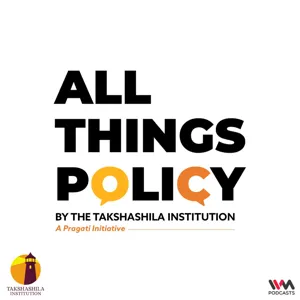On today’s show, we will discuss the case of State of Rajasthan v. Ashok Kumar Kashyap, 2021 SCC OnLine SC 314, wherein the Hon’ble Supreme Court discussed the law relating to framing of charges under the Code of Criminal Procedure, 1973.
To read more about it, please visit our Blog http://www.desikanoon.co.in/2021/06/crpc-code-criminal-procedure-framing-of-charges-discharge-227-228-section-supreme-court.html
Telegram: https://t.me/Legal_Talks_by_DesiKanoon
YouTube Channel: https://www.youtube.com/channel/UCMmVCFV7-Kfo_6S42kPhz2w
Apple Podcasts: https://podcasts.apple.com/us/podcast/legal-talks-by-desikanoon/id1510617120
Spotify: https://open.spotify.com/show/3KdnziPc4I73VfEcFJa59X?si=vYgrOEraQD-NjcoXA2a7Lg&dl_branch=1&nd=1
Google Podcasts: https://podcasts.google.com/feed/aHR0cHM6Ly9mZWVkcy5zaW1wbGVjYXN0LmNvbS84ZTZTcGREcw?sa=X&ved=2ahUKEwiuz4ifzpLxAhVklGMGHb4HAdwQ9sEGegQIARAD
Amazon Music: https://music.amazon.com/podcasts/4b89fb71-1836-414e-86f6-1116324dd7bc/Legal-Talks-by-Desikanoon
Please subscribe and follow us on YouTube, Instagram, iTunes, Twitter, LinkedIn, Discord, Telegram and Facebook.
Credits: Music by Wataboi from Pixabay
Before adverting any further, let us discuss S. 227 and S. 228 of CrPC that are provided in Chapter XVIII (Trial before a Court of Session) of CrPC.
Section 227 provides for
“Discharge.—If, upon consideration of the record of the case and the documents submitted therewith, and after hearing the submissions of the accused and the prosecution in this behalf, the Judge considers that there is not sufficient ground for proceeding against the accused, he shall discharge the accused and record his reasons for so doing.”
And Section 228 provides that if after hearing the accused at the stage of framing of charges, the judge is of the opinion that accused has committed an offence, then he may frame charges against such accused. Further, similar and corresponding provisions are also there in Section 239 and Section 240 of CrPC that deal with Trial of Warrant Cases by Magistrates.
OBSERVATIONS BY THE COURT
Now, let us discuss the observations made by the Court in the present case in relation to discharge of an accused.
Firstly, it was observed that “at the stage of Section 227, the Judge has merely to sift the evidence in order to find out whether or not there is sufficient ground for proceeding against the accused.”
Secondly, the Court opined that only such evidence, that has been recorded by the Police or documents that have been produced before the Court, which ex facie disclose suspicious circumstances against the accused, are to be considered at the stage of framing of charges.
Thirdly, it was further observed that “if the Judge comes to a conclusion that there is sufficient ground to proceed, he will frame a charge under Section 228 Cr.P.C., if not, he will discharge the accused.”
Fourthly, the Court cautioned that while applying judicial mind at the stage of framing of charges, the Court need not enter into the merits of the matter or weigh the evidence and probabilities. Such exercise should be undertaken when the trial commences.
Fifthly, it was laid down that at the stage of framing of charges, the Court must presume that the material available on record by the prosecution is true and if the same is taken at face value, whether it fulfils the necessary ingredients of an offence or not. This is all that the Court is required to see.
Sixthly, the Court clarified that at the stage of framing of charges, the probative value of the material available on record has to be looked into by the Court and there is no need to answer whether such material is sufficient for conviction or not. The Court is only required to see if a prima facie case is made out against the accused and even if there is a slight probability in the mind of the judge that the accused might have committed the offence, then it may frame the charges against the accused.
And lastly, the defence of the accused on merits is not required to be considered at the stage of framing of charges as a Mini Trial is not permissible at such stage. This is very important that the defence of the accused is not to be looked into at this stage.
Those were the observations of the Court in the present case. So, what are my concluding remarks?
CONCLUSION
In conclusion, it could be said that the stage of framing of charges is a preliminary stage in criminal proceedings and the evidence brought out by the prosecution against the accused is to be seen by the Court. If such evidence does not disclose commission of any offence, then the Court must discharge the accused but even if there is an iota of evidence against the accused that fulfils the ingredients of an offence, then charges ought to be framed in such cases. Thus, we see that the application of mind is quite limited at the stage of framing of charges and the Hon’ble Supreme Court has categorically observed that no mini trial could be conducted at such stage.
Please do not forget to like and subscribe us. And if you have any comments, please make them in the comments section.

